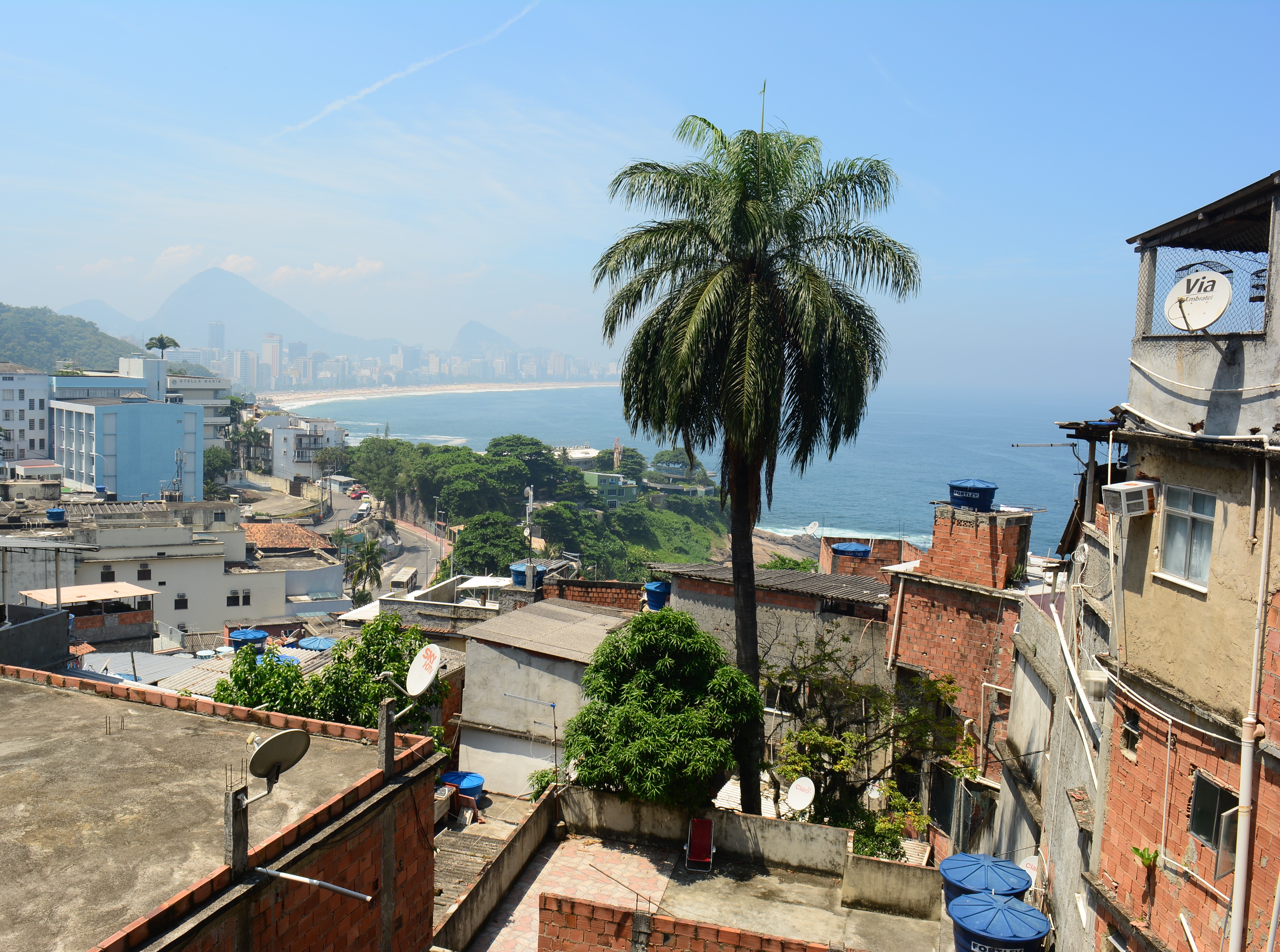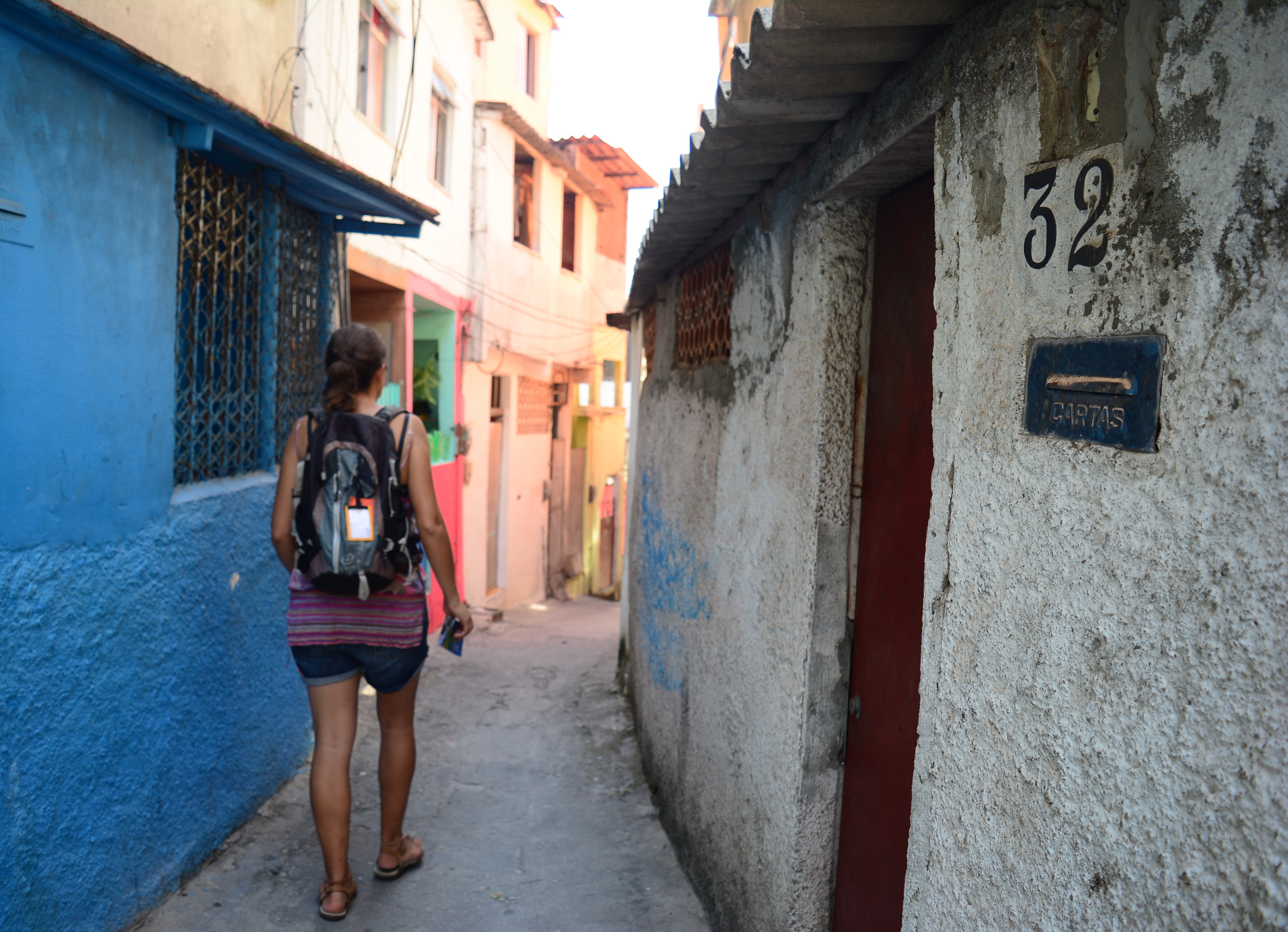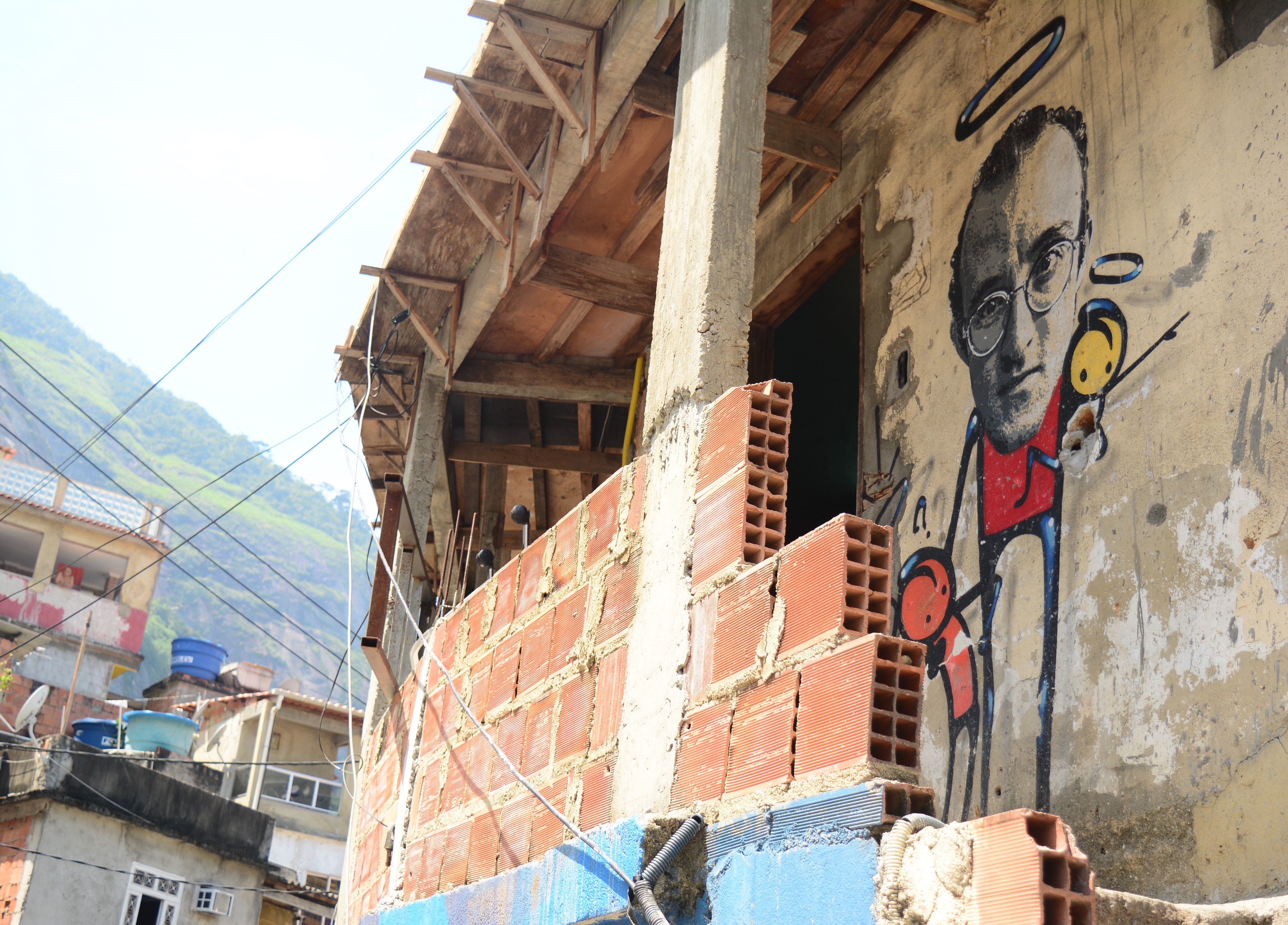Everyone brings their own preconceptions to the favela, it's impossible not to given their pervasive representation through narratives tied to violence, drugs, and social breakdown. Within a day in Vidigal those preconceptions start to dissipate; the friendliness of the neighbors and the welcome given to visitors are unparalleled in modern cities, and a sense of peace is pervasive.
After a week in the favela one begins to appreciate things that would be the envy of most travelers: the views from Vidigal across to Ipanema and the ever-changing sea, and the views across the favela itself which feel like watching life proceed in endless miniatures.

In the evenings there is a wealth of cultural events and places to go, and at night one quickly learns that one can feel safer here than elsewhere in the city. The architecture of the favela has its own beauty not seen in its external representations: by night the illuminated alleyways resemble stage sets made up as they are by so many levels and flights of steps, and the winding passageways in time reveal bars, venues and restaurants not seen by a fleeting visit.
A recent visitor who spent five months volunteering in Favela Experience listed the positives about living in Vidigal: the sense of community, the proximity to Dois Irmãos Mountain and the beach, food and drink are more affordable than in the city, the ubiquity of music, art, theater and dance, and the frequency of churrascos (barbecues) and parties. Other elements of Vidigal life which they would miss included moto-taxis (a bigger dose of adrenalin is hard to buy for 3.5 reais) and the amazing sunsets, as well as the sunrise seen from the top of Dois Irmãos.

The good news is that as more people visit and volunteer in the favelas, so their external representation is becoming more diverse and realistic, showcasing the vibrant cultures that have grown up within them. One of the latest is Inside the Mind of Favela Funk, an exploration of the music scene of the favelas and the lifestyles of the stars and consumers of the genre. The city looks different when seen from the perspectives of those who were born and live in the favelas, and some in the film say they would never leave as life is happier here than in the richer neighborhoods: whatever they lack, their lives have a soundtrack, shared community, social values.

Graffiti artists, poets, and painters are also successfully presenting the lifestyles of the favelas to outside audiences, and visitors to Vidigal are able to meet many of the leading exponents of these arts face-to-face. If you are really interested in immersing yourself in the life of the favela, don’t hesitate to stay here for a longer time. It’s an authentic and deep experience you will always remember!
